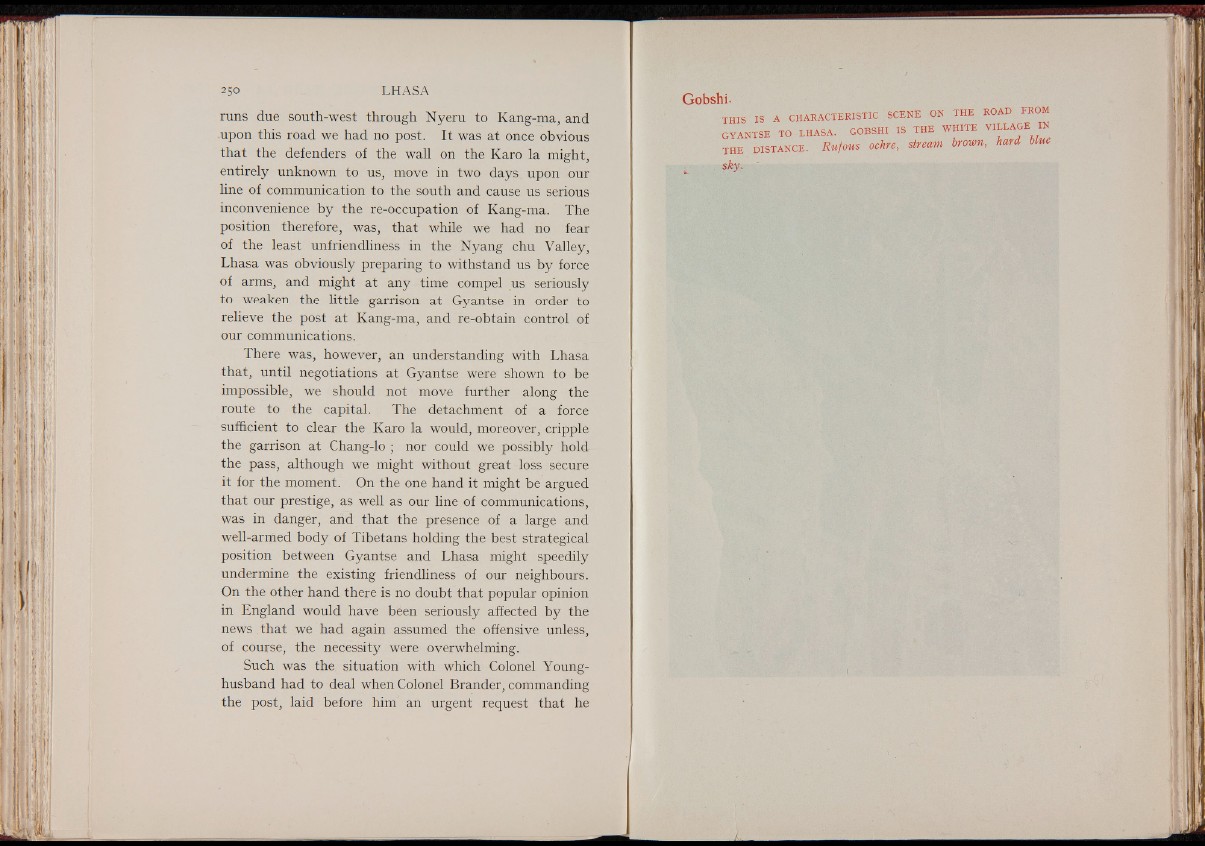
runs due south-west through Nyeru to Kang-ma, and
upon this road we had no post. It was at once obvious
that the defenders of the wall on the Karo la might,
entirely unknown to us, move in two days upon our
line of communication to the south and cause us serious
inconvenience by the re-occupation of Kang-ma. The
position therefore, was, that while we had no fear
of the least unfriendliness in the Nyang chu Valley,
Lhasa was obviously preparing to withstand us by force
of arms, and might at any time compel us seriously
to weaken the little garrison at Gyantse in order to
relieve the post at Kang-ma, and re-obtain control of
our communications.
There was, however, an understanding with Lhasa
that, until negotiations at Gyantse were shown to be
impossible, we should not move further along the
route to the capital. The detachment of a force
sufficient to clear the Karo la would, moreover, cripple
the garrison at Chang-lo ; nor could we possibly hold
the pass, although we might without great loss secure
it for the moment. On the one hand it might be argued
that our prestige, as well as our line of communications,
was in danger, and that the presence of a large and
well-armed body of Tibetans holding the best strategical
position between Gyantse and Lhasa might speedily
undermine the existing friendliness of our neighbours.
On the other hand there is no doubt that popular opinion
in England would have been seriously affected by the
news that we had again assumed the offensive unless,
of course, the necessity were overwhelming.
Such was the, situation with which Colonel Young-
husband had to deal when Colonel Brander, commanding
the post, laid before him an urgent request that he
Gobshi.
THIS IS A CHARACTERISTIC SCENE ON THE ROAD FROM
GYANTSE TO LHASA. GOBSHI IS THE WHITE VILLAGE IN
the distance. Rufous ochre, stream brown, hard blue